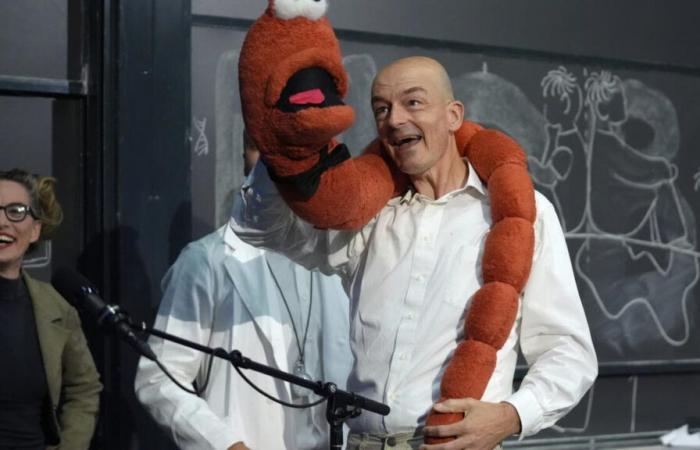A look back at the 34th edition of the Ig-Nobels, which was held on September 16, 2024, at the prestigious Massachusetts Institute of Technology (MIT) in Cambridge. This wacky parody of the Nobel Prizes rewards each year the most unusual and improbable scientific research and discoveries. On this year’s menu: ventilation through the anus, swimming dead fish and the direction of hair growth.Rebroadcast from September 21, 2024
« Research that first makes you laugh and then makes you think »: this is the slogan of Ig Nobel(pun around the word “ignoble” and the very serious Nobel Prizes), a ceremony eagerly awaited each year, a crazy preamble to the awarding of the real Nobel Prizea month later, in Stockholm. It takes place at MIT, the prestigious Massachusetts Institute of Technology, in Cambridge. These are real Nobel Prize winners who, on September 12, presented their prizes to the laureates. Because this unusual and eccentric research, this improbable science, often leads to unexpected scientific advances.
Take for example theIg-Nobel de physiologie 2024, awarded to a team of Japanese researchers for the discovery of breathing through the anus. It was while studying the ventilation of the loach, a fish that breathes rectally and intestinally, that they had the idea of trying the experiment with mammals. They gave rats and pigs in respiratory distress a perfluorocarbon (PFC) enema, oxygenated rectally, and it worked. We could therefore, in an emergency, be oxygenated through the anus and not just through the lungs.
Carried out in the midst of an epidemic of Covid-19this study, which demonstrated that ventilation through the anus can combat respiratory failure in mammals, will now be tested on humans. If the lungs don’t work, let’s look for other ventilation routes, even rectal. This really deserved an Ig-Nobel Prize for improbable sciences.
But other winners have also done very well, like this French researcher from the Necker-Enfants Malades university hospital and his team, winners of the 2024 Ig-Nobel anatomy prize, for their study on the direction of hair growth , depending on whether you live in the northern hemisphere or the southern hemisphere. They succeeded in demonstrating that hair spirals formed clockwise in the northern hemisphere, while in the southern hemisphere, it is the opposite: hair grows and curls in the opposite direction. Enough to walk on your head.
Let us also mention the Ig-Nobel doctor prize awarded to a German researcher from the Max Planck Institute who works on the placebo effect and who demonstrated, with his team, that a placebo works better and has a stronger therapeutic effect. when it is unpleasant or painful. An injection for example, even with perlimpinpin powder, if it hurts, it is because it will do good. Good to know, or not.
We remain in the second degree with the Ig-Nobel prize in physics awarded to a Taiwanese-American researcher from the University of Los Angeles, who studied the swimming abilities of a dead fish. He also came to receive his prize with a giant artificial trout in his hand, because it was by analyzing the movement of a dead trout going upstream that he demonstrated that a body could move by swirling. without spending energy. This is called passive propulsion and could be very useful, not just for inanimate trout.
How far will the best of improbable science and above all the curiosity of all these researchers who are afraid of nothing, not even ridicule?
Also readUnited States: the 25th Ig-Nobel ceremony was held at Harvard






